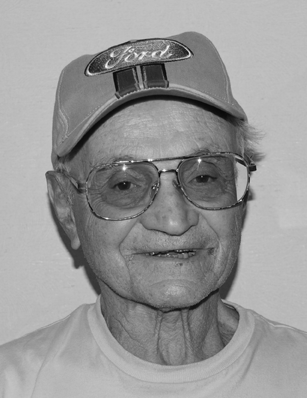Jack Adler
"My message to future generations is a little different than you might expect. Had it not been for the Holocaust, I probably would have stayed in my little village and would have become a teacher. I might have stayed there the rest of my life. Life changed for me because of the Holocaust, I became a man of the world."
Date of birth
12/31/1921
Where did you grow up?
Kassel, Germany
Name of father, occupation
Joseph,
Men's clothing business
Maiden name of mother, occupation
Rebecca,
Homemaker
Immediate family (names, birth order)
Parents, four sisters, one brother
How many in entire extended family?
Three uncles and their families, about 20-30 relatives
Who survived the Holocaust?
70% of the family
In 1938, when I was 17, my father and I were able to get visas to leave for England.
Before the war I grew up in a small village called Kassel in Germany. One day the police came into my village and arrested my father and me. We were taken on a train going to the East that stopped every 50 miles to pick up more Jews. We were handed over to the German SS at the Polish border. There were twenty to thirty of us all together. The guards made my father and I pound nails in boards. They were apparently very impressed by how hard we could work. They said they didn’t know Jews could work so hard. The SS said we were good Jews. They showed my father and me where to cross the fields to get to Polish villages. Non-Jews in the village gave us back to the SS. There was a German Jewish Committee that had a limited number of travel permits. These Nazis wanted them to give permits to us to travel to England.
My mother and sisters were sent to a ghetto in Riga, Latvia. There they sewed German uniforms. They were sent to Stutthof concentration camp in eastern Germany. My younger sister and my little brother got sick there and died in the camp.
After the war ended, I returned to my home town to look for my mother and sisters who had been liberated by the Russians. I found them in a house in my village. Later, my parents and sisters wanted to leave for Australia to make a new life. I liked my work, liked living in England, and wanted to stay there. My family went to Australia, I never saw them again.
From 1945-1947, I joined the U.S. war department. My job was to censor German mail. I had twelve employees reading and translating letters. When they found something they felt should be censored they brought it to me. We destroyed the letters. I was stationed in Stuttgart, Munich, and Frankfort. I was a civilian employee but wore a military uniform.
In 1949, I came to America. I first went to New York and then to Detroit where my uncle had a radiator shop in east Detroit. I worked in sheet metal in Hamtramck and then spent the rest of my working life at the gas company in Detroit.
I have traveled the world, especially Europe and South America.
Name of Ghetto(s)
When did you come to the United States?
1949
Where did you settle?
Detroit
Occupation after the war
I worked in sheet metal, then for the gas company. I retired at age 58 after I was successful in the stock market.
When and where were you married?
1942 in England to another survivor.
Spouse
Tragically, my wife died in 1946 and I have been a widower ever since.
Children
Alan, dentist in Detroit Sue, librarian in San Francisco
Grandchildren
One granddaughter, two grandsons
What do you think helped you to survive?
I would say that I was lucky to survive the Holocaust. Luck, I was sent to England.
What message would you like to leave for future generations?
My message to future generations is a little different than you might expect. Had it not been for the Holocaust, I probably would have stayed in my little village and would have become a teacher. I might have stayed there the rest of my life. Life changed for me because of the Holocaust, I became a man of the world.
Interviewer:
Charles Silow
Interview date:
04/04/2011

